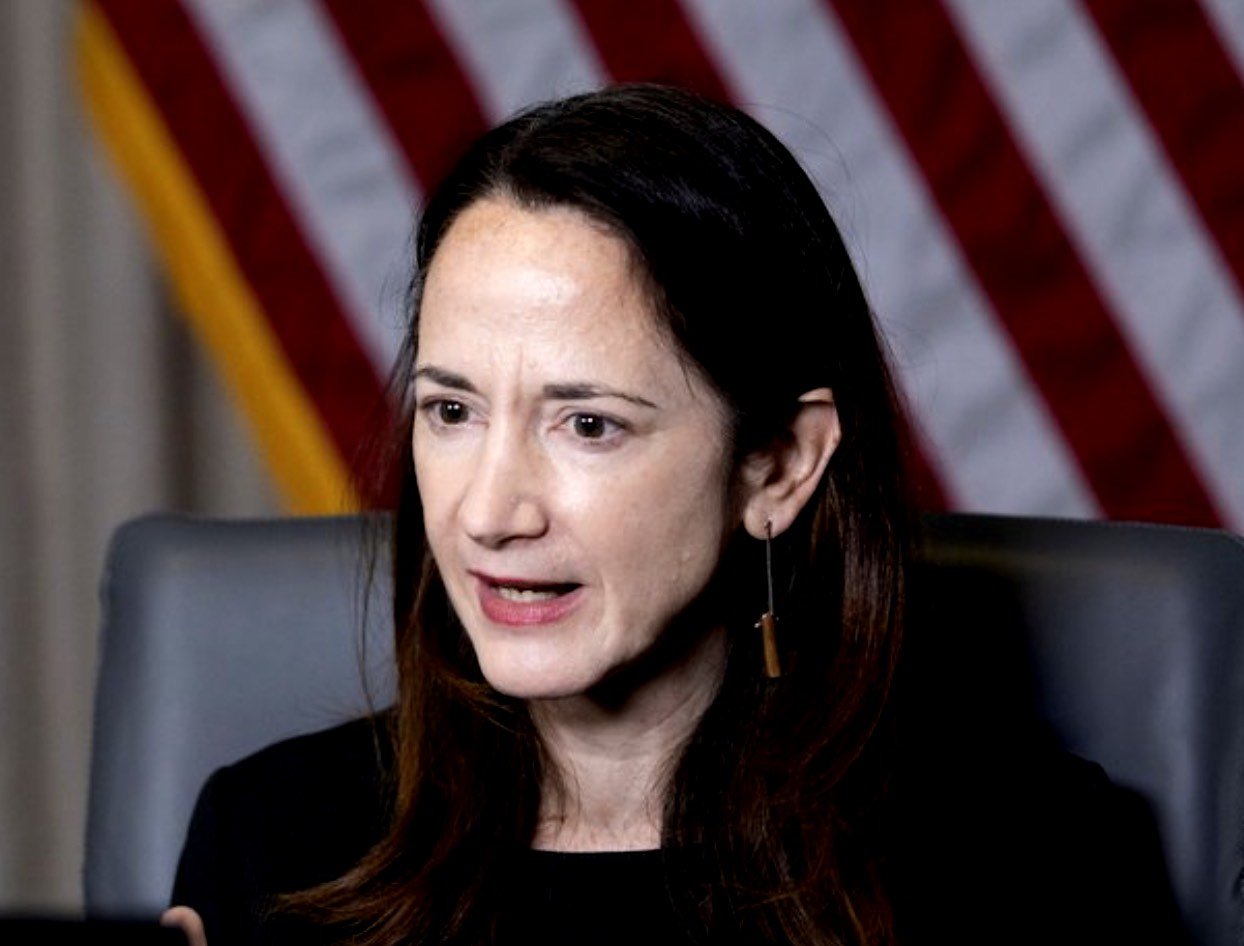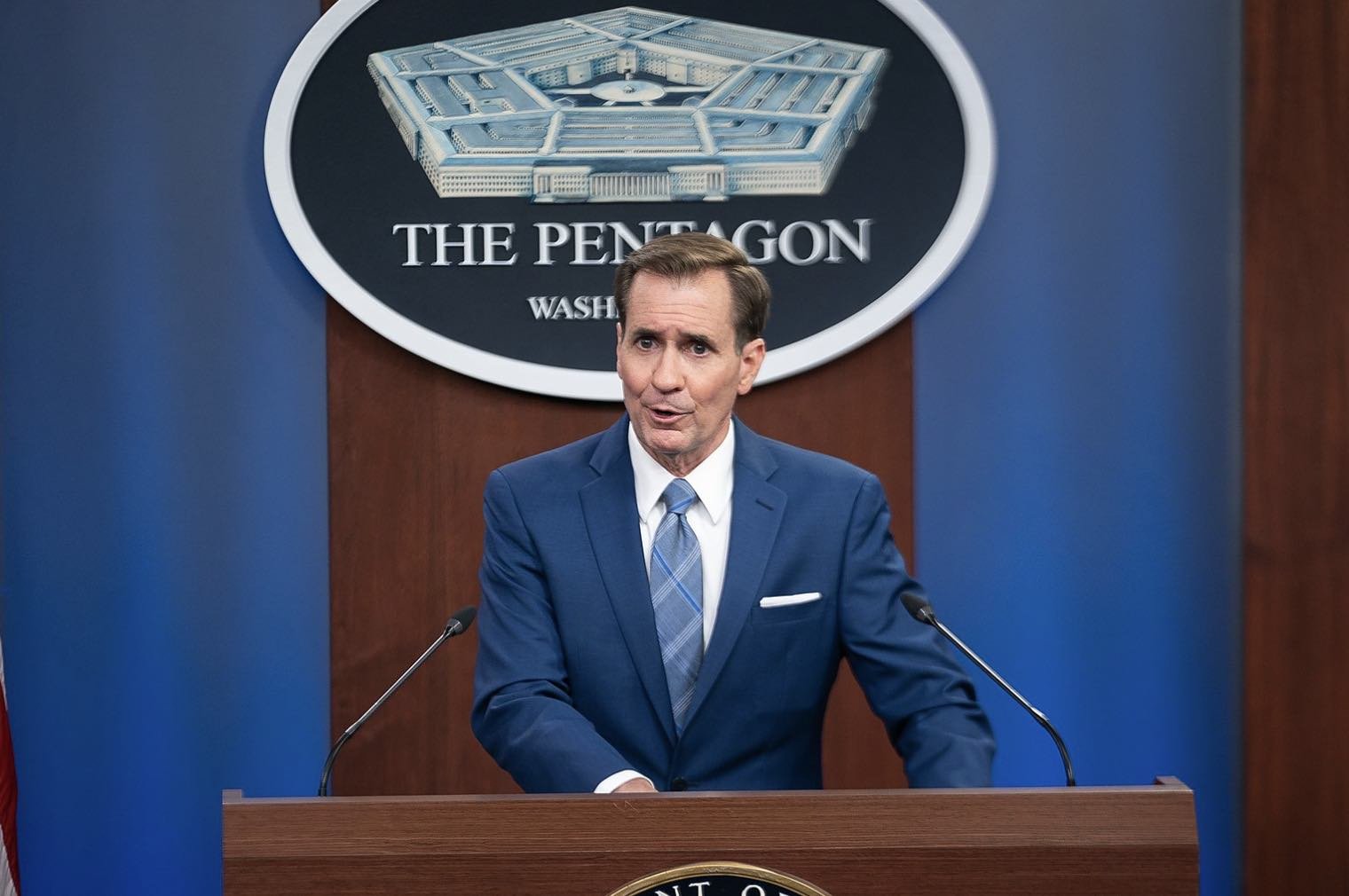

Welcome to this week’s edition of The Intelligence Brief… in recent days, DNI Avril Haines provided concerning new details on intelligence assessments about Russia’s long game in Ukraine. A few points we’ll be looking at in this week’s analysis include 1) why intelligence suggests Russia is planning for a “prolonged conflict”, and what that could mean for the West, 2) the U.S. response in the form of ongoing military aid, and 3) what the DOD has had to say in recent days about U.S. military aid it is currently providing to Ukraine.
Quote of the Week
Peace is not absence of conflict, it is the ability to handle conflict by peaceful means.
-Ronald Reagan
Before we begin our analysis this week, a few stories we have been covering this week include how the US Navy Office of Naval Research has successfully tested an all-new, fully electric laser weapon system. Elsewhere, if have a defiant curiosity for the mysterious and a yearning to investigate Unidentified Aerial Phenomena, you may want to know that the DOD is hiring. Lastly, in yet another clue that the origin of all life may be extraterrestrial, NASA says it has found all pieces of DNA and RNA inside meteorites.
Also, if you missed Chrissy Newton’s recent chat with Sara Seager about whether we are alone in the universe, you find that entire video, along with all of our latest video news and interviews, on The Debrief’s YouTube page.
With all that out of the way, it’s time to shift our attention to the warning recently provided by the Director of National Intelligence about Russia’s long-term intentions in Ukraine, and how the U.S. is currently responding.
DNI Haines Warns of Prolonged Russian Conflict
Since late February, battle has raged on in Ukraine amidst a Russian invasion attempt that, obviously at this point, has become a far more prolonged conflict than Vladimir Putin had likely bargained for. Now, it appears a prolonged conflict is nearly inevitable with Russia gearing up for the long haul, raising new concerns for western leadership.
Earlier this week, U.S. Director of National Intelligence Avril Haines warned that even if Russia fails to capture Ukraine’s eastern Donbas region, all indications are that Russia appears to be grounding itself and preparing for “prolonged conflict.”


“We assess President Putin is preparing for a prolonged conflict in Ukraine during which he still intends to achieve goals beyond the Donbas,” Haines said on Tuesday during an annual hearing before the Senate Armed Services Committee, where she added that there appears to be no “viable negotiating path forward” for Ukraine and Russia in the immediate term.
Even more concerning, Haines said that current intelligence indicates that ongoing concerns about Putin’s potential use of nuclear weapons are not yet off the table, citing “potentially escalatory military actions” on part of the Russian leader.
According to Haines in her statement before the Committee, Putin appears to have a “greater ability and willingness to endure challenges”, with the DNI adding that the Russian leader is “probably counting on U.S. and E.U. resolve to weaken as food shortages, inflation and energy prices get worse.”
$40 Billion in Additional Aid to Ukraine
Of course, as economic conditions worsen for the West, Russia continues to face a stiff set of sanctions imposed by the United States and other countries. This, in addition to $40 billion in aid that is set to be delivered to Ukraine by Congress.
Earlier this week, The Debrief reported on the $40 billion military aid package providing emergency funding to Ukraine, which the House approved on Tuesday evening. The bill marked the latest bipartisan effort in Washington to provide support for Ukraine.
As noted earlier this week, the bill is now set to go before the Senate, after it was approved by the House in a 368-57 vote within just hours of its introduction. The package covers a range of military and economic aid for the embattled country, along with provisions for humanitarian relief.
President Joe Biden, who previously alerted members of Congress that funding for Ukraine would likely run out in the days ahead, could provide his signature for the bill as soon as week’s end. Equally committed to its passage, Senate Majority Leader Chuck Schumer said he expects the bill to “move swiftly” once it goes before the Senate.
The DOD Urges Ongoing Support for Ukraine
Prior to Congress taking action on the latest efforts to provide relief to Ukrainians in the country’s ongoing conflict with Russia, Pentagon Press Secretary John Kirby also said the DOD urged lawmakers to aid in keeping the U.S. and its military “focused on making sure that the Ukrainians’ air defense remains effective.”
“They are still putting up very stiff resistance,” Kirby said earlier this week, “and they have prevented the Russians from achieving many of the objectives that they had in the Donbas region, adding that Ukrainian is “still fighting hard.”
“We still believe it’s a very dynamic environment,” Kirby told reporters during the briefing. “It’s a very kinetic fight. And villages and towns continue to change hands and the Russians have not made much of any appreciable progress.”


As previously noted in The Intelligence Brief, a Pentagon fact sheet detailing security assistance committed to Ukraine already by the United States was updated on Tuesday to present the latest “drawdown of equipment from DoD inventories for Ukraine since August 2021,” which details security assistance that includes more 1400 anti-aircraft systems, a combined number of close to 20,000 anti-armor systems, unmanned aerial systems, and a host of other weapons and vehicles the U.S. has provided the country.
With the latest details from the Director of National Intelligence on Putin’s aim to prolong the conflict, it seems likely at this point that additional aid will be required in the weeks and months ahead. Several in Washington, particularly House Republicans, have also weighed in on this likelihood, underscoring both the global impact of Russia’s war against Ukraine and the ongoing obligations the United States and other nations will have in providing aid as the conflict continues.
That wraps up this week’s installment of The Intelligence Brief. You can read past editions of The Intelligence Brief at our website, or if you found this installment online, don’t forget to subscribe and get future email editions from us here. Also, if you have a tip or other information you’d like to send along directly to me, you can email me at micah [@] thedebrief [dot] org, or Tweet at me @MicahHanks.


Here are the top stories we’re covering right now…
- Archaeologists Have Found Ancient Friendship Bracelets, Revealing the Roots of this Tradition
Whether it’s a matching shirt or necklace, or our favorite video games, we love to share physical objects with our close friends.
- Fishing in Extraterrestrial Seas
The best way for humanity to garner respect from any potential extraterrestrial neighbors is to seek new knowledge through evidence.
- Navy Witnesses Describe 2004 Encounter With UAP Aboard the USS Ronald Reagan New details have emerged about a 2004 incident involving U.S. Navy personnel who observed an unidentified object following their vessel.
Navy personnel who witnessed a 2004 incident involving UAP seen from aboard the USS Ronald Reagan have now come forward with details about their striking encounter.
- What are the Evolutionary Origins of Recognizing Music?
Researchers exploring the evolutionary origins of music have found that the process of the brain recognizing melodies is older than expected.
- Have Zoom Fatigue? It’s Because You’re Staring at Yourself
Researchers at Stanford University have found that one of the causes for zoom fatigue is staring at oneself all day.
- US Navy Shows Off Newest Laser Weapon
The US Navy Office of Naval Research has successfully tested an all-new, fully electric laser weapon system. Designed to fry aerial threats like drones and missiles, the new weapon system is entirely electric, so it doesn’t require chemicals.
- The DoD’s Unidentified Aerial Phenomena Office Was Recently Hiring
Do you have a defiant curiosity for the mysterious and a yearning to investigate “Unidentified Aerial Phenomena” (UAP), more commonly known as UFOs?
- Are Paranormal Beliefs and Cognitive Function Linked?
A new study shows that those who have paranormal beliefs display “differences or deficits” in cognitive function. No specific pattern or type of dysfunction was correlated with paranormal beliefs.
- Another Clue Origin of Life May Be Extraterrestrial
In yet another clue that the origin of all life may be extraterrestrial, NASA says it has found all pieces of DNA and RNA inside meteorites.
- New Research Shows Another Key Feature to Identify a Psychopath
New research from the University of New Mexico reveals a curious fact: psychopaths don’t move their heads while talking.
- The “Equal-Opportunity Jerk:” How Rudeness Can Cover Up Sexism
New research from the University of Texas reveals that rudeness can be used as a cover for something even more concerning in the workplace.
- Future Spacecraft Will Use Pulsars to Navigate
Future spacecraft will be able to use the x-rays emitted by pulsars to navigate in the vastness of deep space.
- How Can we Guide Our Life?
In the future, could an interactive artificial intelligence (AI) system answer questions for us, and carry the flame of life and consciousness?
- Could Sound Waves be a Viable Cancer Treatment Option?
New research suggests that sound waves may provide promising results as a novel form of treatment for cancer.
